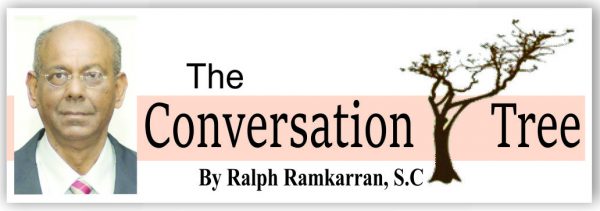
Readers will recall that the coalition’s core manifesto proposals for constitutional reform for the 2015 elections include separate presidential elections, the person gaining the second highest votes becoming the prime minister and any party gaining 15 percent or more of the votes being entitled to a share in the government.
On the Parliament’s website, the following appears: “Parliamentary Standing Committee for Constitutional Reform. Pursuant to Article 119A of the Constitution, as soon as may be the beginning of the National Assembly, there shall be appointed a Standing Committee for Constitutional Reform for the purpose of continually reviewing the effectiveness of the working of the Constitution and making periodic reports thereon to the National Assembly, with proposals for reform as necessary. The Parliamentary Standing Committee for Constitutional Reform shall consist of no less than six (6) or no more than ten (10) members to be nominated by the Committee of Selection.”
The members listed are: Messrs. Basil Williams, Khemraj Ramjattan, Raphael Trotman, Nicolette Henry, Rupert Roopnarine, Adrian Anamayah, Priya Manickchand, Anil Nandlall.
There are no special rules for the convening of parliamentary committee meetings and no special sanctions for not doing so. The Chair, at his or her own volition, could request the Clerk to convene a meeting. But he or she would usually do so after consultation with all or most members of the committee. If any member of a committee feels that a meeting is necessary, there is nothing to stop the member from requesting the Chair to convene a meeting.
No member has apparently requested the Chair, AG Basil Williams, to convene a meeting of the Standing Committee for Constitutional Reform to discuss the Constitution Reform Commission Bill that Prime Minister Nagamootoo says is before the Committee. The failure of the Standing Committee to conclude its consideration of the Bill, which it has had since July 2017, when it was tabled in the National Assembly and had its first reading, suggests that the Parliament’s business, and hence that of the nation, is being neglected, or worse, being hindered, by the Committee.
But Prime Minister Nagamootoo is not powerless. Under the Constitution of Guyana, he is the Leader of Government Business in the National Assembly. If a Bill in his name is before the Standing Committee for Constitutional Reform, and there is delay in considering it, he cannot pass the buck. He cannot blame the Committee. As Prime Minister and Leader of Government Business, he has the authority to direct AG Basil Williams to convene a meeting of the Committee to consider the Bill. If he needs help, the Prime Minister can invoke the assistance of the Cabinet or of the President. If the Prime Minister is unwilling to take such steps, he has to take responsibility, rather than appealing to the public for understanding.
The Standing Committee, having failed to address the Bill, the Prime Minister can request the National Assembly to proceed with consideration and passing of the Bill at a Second Reading. There is no rule or practice that requires a Bill to be considered by a Standing Committee prior to it being debated in the National Assembly. And there is no rule that prevents the Prime Minister to request the Second Reading of the Bill.
Prime Minister Nagamootoo has not explained why, the Standing Committee on Constitutional Reform having failed to consider the Bill, he has in turn neglected to exercise his power and authority to push the Bill along the parliamentary process. If the Prime Minister and the Government considered constitutional reform, leading to inclusive governance, to be an important matter, they would have caused the Bill to be tabled in the National Assembly long ago and not allow the Standing Committee to upend the parliamentary process, embarrass the Prime Minister, derail APNU+AFC’s election promises and delay progress.
The Guyanese public is accustomed to the fierce partisan disputes between the political parties in our adversarial political system. On this matter, however, there appears to be an uncommon unity. APNU+AFC and the PPP are represented in the Standing Committee for Constitutional Reform. No movement in this Committee in relation to the Constitution Reform Bill suggests that all the parties, including APNU+AFC, are either united in delaying the Bill and embarrassing the Prime Minister and Government. And this state of affairs persists despite a similar, earlier, explanation by the Prime Minister. Should the public now conclude that both APNU+AFC and the PPP are now united in their opposition to progress on the Bill and hence to constitutional reform?
This column is reproduced, with
permission, from Ralph Ramkarran’s blog, www.conversationtree.gy





